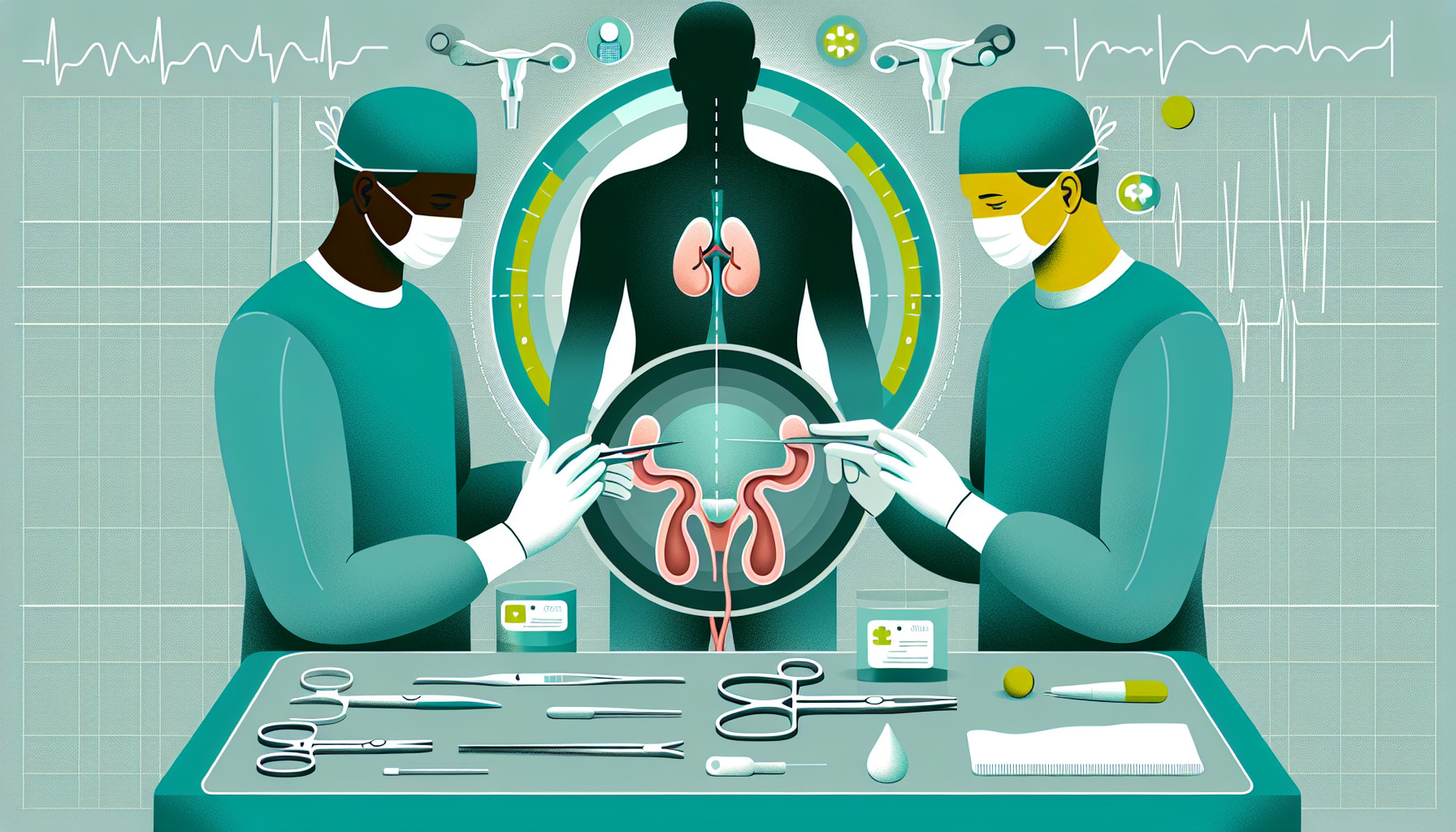Our Summary
This research paper is a review of the most common complications that can occur after a specific type of surgery called a radical cystectomy, which is usually performed to treat bladder cancer. The researchers looked at various studies and articles to understand how often these complications occur, how they can be prevented, and how they are treated.
The research found that the information available is mostly based on looking back at past cases and is not standardized, making it hard to give recommendations based on solid evidence. However, it’s clear that progress has been made in recent years in reducing deaths and preventing complications from this surgery.
The most common issues patients face after this surgery are related to the digestive system. Significant efforts have been made to reduce these issues using protocols known as ERAS and Fast Track. The complications that can most significantly affect a patient’s quality of life involve urinary stoma, which is an artificial opening created for urine to exit the body.
FAQs
- What are the most common complications after a radical cystectomy?
- How are complications after a radical cystectomy prevented and treated?
- What is a urinary stoma and how does it affect a patient’s quality of life after a radical cystectomy?
Doctor’s Tip
A helpful tip a doctor might tell a patient about cystectomy is to closely follow post-operative care instructions, including proper wound care, maintaining a healthy diet, staying hydrated, and attending follow-up appointments. It is important to communicate any concerns or symptoms to your healthcare team promptly to address any potential complications early on. Additionally, participating in physical therapy and pelvic floor exercises can help improve recovery and prevent complications such as urinary incontinence.
Suitable For
Patients who are typically recommended for cystectomy are those with aggressive or advanced bladder cancer that has not responded to other treatments such as chemotherapy or radiation therapy. Patients with muscle-invasive bladder cancer or high-grade non-muscle invasive bladder cancer may also be candidates for cystectomy. Additionally, patients with recurrent bladder cancer or those with a history of multiple bladder tumors may be recommended for cystectomy.
Other factors that may influence the recommendation for cystectomy include the overall health and fitness of the patient, the presence of comorbid conditions, and the patient’s willingness to undergo surgery and post-operative care. It is important for patients to discuss the risks and benefits of cystectomy with their healthcare team to determine if this procedure is the best option for their individual situation.
Timeline
Before the cystectomy:
- Patient is diagnosed with bladder cancer and undergoes various tests and consultations with medical professionals.
- Patient and medical team decide on the best course of treatment, which may include a radical cystectomy.
- Patient undergoes pre-operative preparations, which may include imaging tests, bloodwork, and possibly chemotherapy or radiation therapy.
- Patient receives information and education about the surgery and potential complications.
After the cystectomy:
- Patient undergoes the surgery, which involves removal of the bladder and possibly other nearby organs.
- Patient stays in the hospital for a period of time to recover and receive post-operative care.
- Patient may experience pain, discomfort, and difficulty with mobility due to the surgery.
- Patient may have complications such as infection, blood clots, or issues with the urinary stoma.
- Patient undergoes follow-up appointments and monitoring to ensure proper healing and address any complications that arise.
- Patient may need to make lifestyle adjustments, such as managing a urinary stoma or undergoing further treatment for cancer if necessary.
What to Ask Your Doctor
Some questions a patient should ask their doctor about cystectomy include:
- What are the risks and potential complications associated with a cystectomy?
- How can I prepare for the surgery and what can I expect during the recovery process?
- Will I need any additional treatments or therapies following the surgery?
- How long will it take for me to fully recover and resume normal activities?
- What are the long-term effects of a cystectomy on my overall health and quality of life?
- Are there any alternative treatment options available for my condition?
- How often will I need to follow up with you after the surgery?
- What signs or symptoms should I watch for that may indicate a complication or infection?
- Are there any specific dietary or lifestyle changes I should make to support my recovery?
- Can you provide me with resources or support groups for individuals who have undergone a cystectomy?
Reference
Authors: Rodríguez Faba O, Parada Moreno R, Malca L, Palomino Martínez A, Nervo N, Breda A, Esquinas C, Palou J. Journal: Actas Urol Esp (Engl Ed). 2018 Apr;42(3):143-151. doi: 10.1016/j.acuro.2017.04.006. Epub 2017 Jun 3. PMID: 28587844
